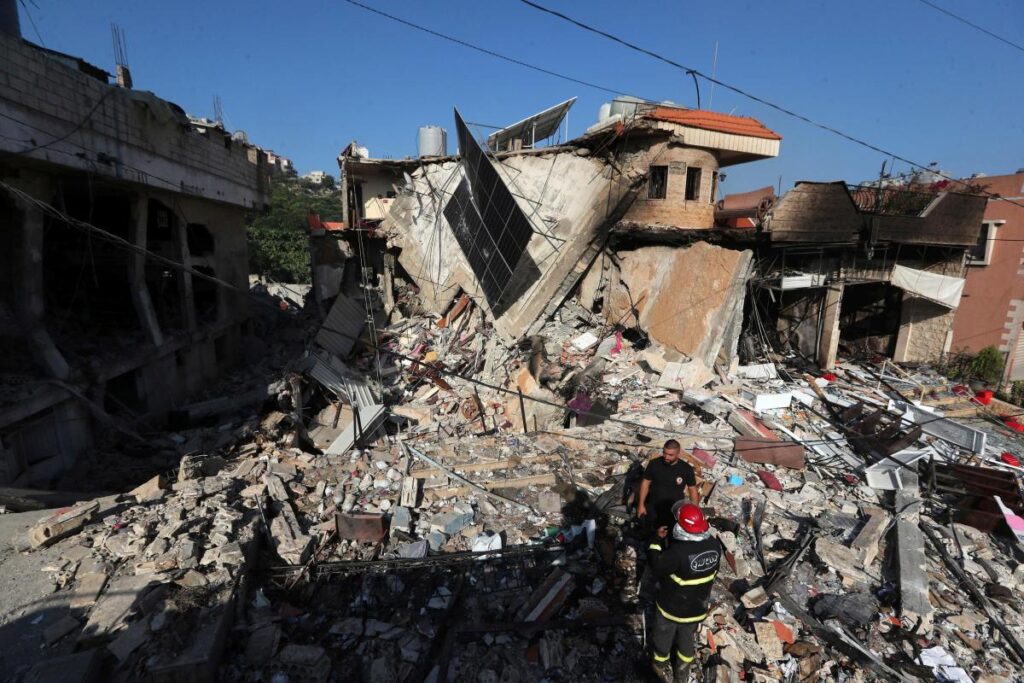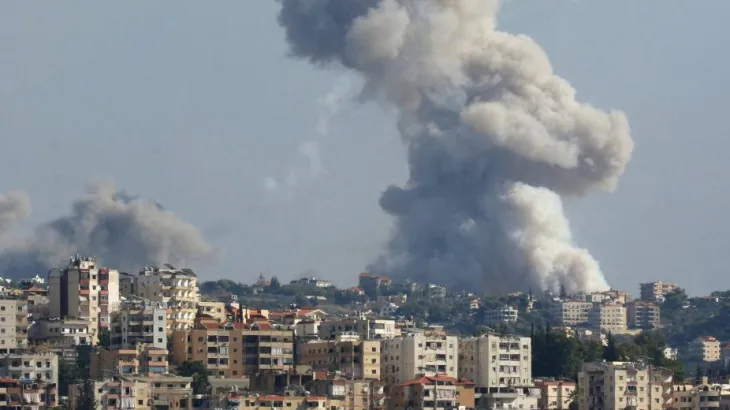The death toll from Israeli strikes on Lebanon has reached 558, with 1,835 injured since Monday, Lebanon’s Health Minister Firass Abiad said Tuesday. The victims include 50 children and 94 women.

Israeli forces continued to strike targets in southern Lebanon on Tuesday, while the Iran-backed Hezbollah fired rockets into northern Israel, marking the second day of intensified hostilities.
Israel’s military reported hitting dozens of Hezbollah targets. Hezbollah claimed it attacked Israeli military facilities, including an explosives factory 60 km (37 miles) inside Israel, using Fadi rockets around 4 a.m. (0100 GMT). The group also said it targeted the Megiddo airfield three times overnight.
Israeli Prime Minister Benjamin Netanyahu stated that Israel was targeting Hezbollah, not Lebanese civilians, and would no longer tolerate rocket attacks on northern Israel. Defense Minister Yoav Gallant said the campaign would continue until northern residents could safely return to their homes.
Lebanese minister Nasser Yassin reported that tens of thousands were fleeing southern Lebanon “due to Israeli atrocities.”
The escalation has alarmed world leaders and humanitarian officials. The G7 foreign ministers warned of the risk of a broader regional conflict. The United Nations human rights chief’s office expressed extreme alarm over the worsening hostilities.

A World Health Organization official in Lebanon reported that some hospitals were “overwhelmed” by thousands of wounded. UNICEF stated that at least 35 children had been killed in the airstrikes on Lebanon, with more missing under rubble.
Lebanese caretaker Prime Minister Najib Mikati plans to fly to New York for discussions at the United Nations General Assembly.
The United States has sent additional troops to the area, with President Joe Biden working to de-escalate the situation.
Hezbollah has vowed to continue fighting until there’s a ceasefire in Gaza. Israel warned people in Lebanon to evacuate areas where it claimed the armed movement was storing weapons, an assertion Hezbollah has not commented on and which Reuters could not independently verify.
The rapidly escalating conflict has raised fears of a broader regional war, as Israel continues its offensive in Gaza while facing a new front in the north.



